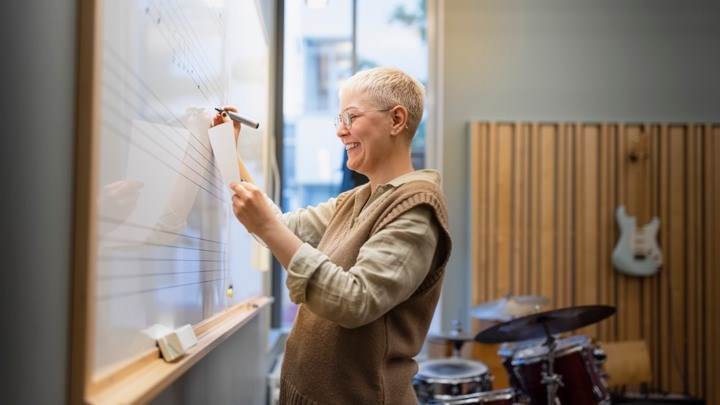Semester 1: The first year starts with the course "Music, Human Beings, Technologies", 15 credits. This course addresses debates about how and why human beings are musical, as well as the relationship between human beings, culture, technologies and music. Following this you will undertake the course "Music Research in its Many Forms", 15 credits. This course explores music research from a multidisciplinary perspective and will equip you as a student with in-depth perspective on multimodal music analysis.
Semester 2: During this semester you will first take the course "Methods and Methodologies in Music Research: Theory and Practice", 15 credits. This course is focused on developing the methodological and theoretical skills to research people's musical engagement using different methods (eg. social media analysis, questionnaires and archive research). Following this you can either choose to write an independent Master’s thesis (magister), 15 credits, if you want to finish after the first year, or an “Individually chosen specialization course”, 15 credits, adapted to a topic that you are personally interested in.
Semester 3: This semester starts with the course "Culture, Structure and Society", 15 credits, which will deepen your understanding of questions related to music's relationship to the concept of "culture" and societies at large. Following this, you will take the course "Music’s Value in the World" 15 credits, which is aimed at enhancing your understanding of music in a democratic and fair society from aesthetic, philosophical and pedagogical perspectives.
Semester 4: During this semester you will undertake an independent Master’s thesis, 30 credits, the entire semester. During the course, you will be able to choose a music-related topic that you are most interested in. You will be supported by experts in the field of music research as supervisors.

